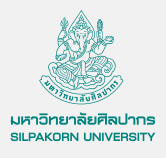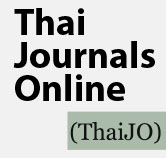
แรงงานต่างด้าวในภาคประมง กับความรุนแรงเชิงวัฒนธรรม
Foreign Workers in Fishing Industry and Cultural Violence
โดย วราภรณ์ มนต์ไตรเวศย์ / By Varapon Montrivade
Damrong Journal, Vol 12, No.2, 2013
บทคัดย่อ:
บทความนี้มุ่งตอบคำถามหลักที่ว่า “อะไรคือความรุนแรงเชิงวัฒนธรรมที่ทำให้ความรุนแรงทางตรงและความรุนแรงเชิงโครงสร้าง ที่กระทำต่อแรงงานต่างด้าวที่ทำงาน และอาศัยอยู่ในชุมชนที่เกี่ยวข้องกับอุตสาหกรรมประมงกลายเป็นเรื่องธรรมดาที่ยอมรับได้” โดยพิจารณาผ่านการทำงานที่เชื่อมประสานของ “สามเหลี่ยมความรุนแรง” ซึ่งได้แก่ ความรุนแรงทางตรง ความรุนแรงเชิงโครงสร้าง และความรุนแรงเชิงวัฒนธรรม โดยใช้ข้อมูลเอกสารและงานภาคสนาม ณ ชุมชนปากนํ้าชุมพร ตำบลปากนํ้า อำเภอเมือง จังหวัดชุมพร ในช่วงเดือนมีนาคม พ.ศ. 2550 และ ณ ชุมชนบ้านอ่าวน้อย ตำบลอ่าวน้อย อำเภอเมืองจังหวัดประจวบคีรีขันธ์ ในช่วงเดือนมีนาคม พ.ศ. 2554 ผลการศึกษาชี้ให้เห็นว่าอุดมการณ์หรือมายาคติที่ว่าด้วยความเป็นอื่น อคติทางชาติพันธุ์ ประวัติศาสตร์การสร้างชาติ และการแสวงหาประโยชน์ของผู้คนในชนชั้นที่แตกต่าง คือ “ความรุนแรงเชิงวัฒนธรรม” ที่ผลักดันให้เกิดความรุนแรงทางตรงและความรุนแรงเชิงโครงสร้าง ที่กระทำต่อแรงงานต่างด้าว กลายเป็นเรื่องธรรมดาที่ยอมรับได้
ABSTRACT:
This article aims to find out why the concept of “cultural violence” makes direct and structured violence against foreign fishing workers acceptable? The researcher used the concept of “the violence triangle” as a framework to conceptualize the data from documents and anthropological fieldwork. The fieldwork in this study consisted of observations and interviews with foreign workers and local people in two fishing communities. The first community was located in Chumphon province in March 2007, and the second one was situated in Prachuap Khiri Khan province in March 2011. The results of this study indicated that cultural violence is acceptable the Thai fishing industry because of 1) the other 2) the ethnocentric 3) the history of nation building and 4) the exploitation of people in different socioeconomic classes. These are the mechanism that make Thai people feel it is acceptable to use violence against foreign workers.











